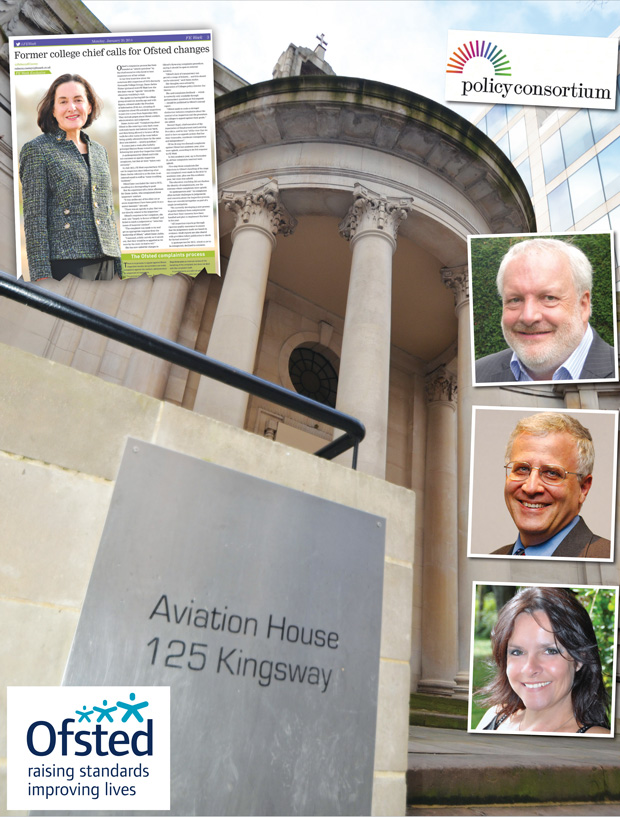As many as 1,500 qualifications face the public funding axe as the Skills Funding Agency (SFA) looks to introduce a 15-credit threshold.
The SFA has published a list of 1,477 Qualification and Credit Framework (QCF) level two to four qualifications which it says will not be approved for funding in 2014/15.
It aims to make funding only available to qualifications of at least 15 credits (one credit equates to 10 hours’ learning), despite draft proposals late last year in which qualifications had to be of at least 12 credits. The change means that certificates — not just lower-credited awards — will be hit.
Jill Lanning, Federation of Awarding Bodies (FAB) chief executive, said: “We are naturally concerned that the new rules and the resultant significant reduction in the number of qualifications eligible for public funding will have serious implications for awarding bodies but also for the breath of the offer available to providers and learners.
“FAB will continue to represent its members’ views in our on-going discussions with the Skills Funding Agency as the implications of these changes become clearer.”
The move comes after a review by BAE Systems group managing director Nigel Whitehead late last year, in which he suggested 95 per cent of the adult vocational market’s 19,000-plus qualifications could be axed in a bid to “de-clutter the system”.
Nevertheless, 15-credit announcement came via a statement on the SFA website while the sector awaits the Skills Funding Statement.
It said on the SFA website: “This is a list of QCF qualifications from level two to four approved for funding for 2013/14 but which do not meet the new size business rule of 15 credits for level two to four qualifications, and are therefore not approved for 2014/15.
“Awarding organisations may notify that they wish the agency to consider funding a qualification below 15 credits.”
Among the awarding organisations with qualifications named in the list is apt awards, which has seven qualifications on the list.
Chief executive Christine Bullock said she had a team analysing the impact the cull would have.
She said: “It is something we were aware of and we are analysing the document as we speak.”
City & Guilds has 289 qualifications at risk. A spokesperson said: “We will look into the information further and work with the SFA accordingly.”
It comes after a cull of more than 1,800 adult qualifications that had little or no uptake was reported by FE Week last September. The SFA axed the funding for a host of awards, from entry level to level four, as part of its New Streamlined Funding System for Adult Skills in August.
Among the qualifications hit were City & Guilds’ level one award in creative techniques in jewellery — personalised key fob and the Royal Society for Public Health’s level two award in health promotion.
Ms Lanning, from FAB, said: “The SFA outlined its thinking [on latest cull] to our members at a couple of forums last Autumn which did indicate restrictions on funding based on the size of qualifications so our members have waiting to see what this would mean in practice.
“It is no secret that public funding and therefore the SFA’s budget is being squeezed and they have been developing their new approach over the past few months.”
She added: “Our members will now be working through this very detailed document to understand what it means for them.
“It is important to remember that a significant number of qualifications are already taken by learners who finance themselves or are supported by their employers.”
————————————————————————–
Editorial: Skills Funding Statement leakage?
The Skills Funding Agency said in its weekly update that it could not announce funding rules for next year until BIS published the now well overdue annual Skills Funding Statement (SFS).
It might therefore come as a surprise to learn that on the same day the agency said this, it announced a significant funding rule anyway.
The new rule states level two, three or four qualifications below 15 QCF credits will no longer be funded.
Could it be the SFA could not wait any longer, and the SFS information blockage is starting to leak?
Providers, who try to plan and advertise their courses well in advance, should be the first to be informed.
Instead, this significant funding change was to be found in new ‘business rules’ for awarding organisations, like it was perfectly normal and to be expected.
Without FE Week bringing the change to the attention of providers, how long before they would have realised?
The SFS (still not out at the time of going to press) serves to communicate such changes. It cannot come soon enough.
Chris Henwood



